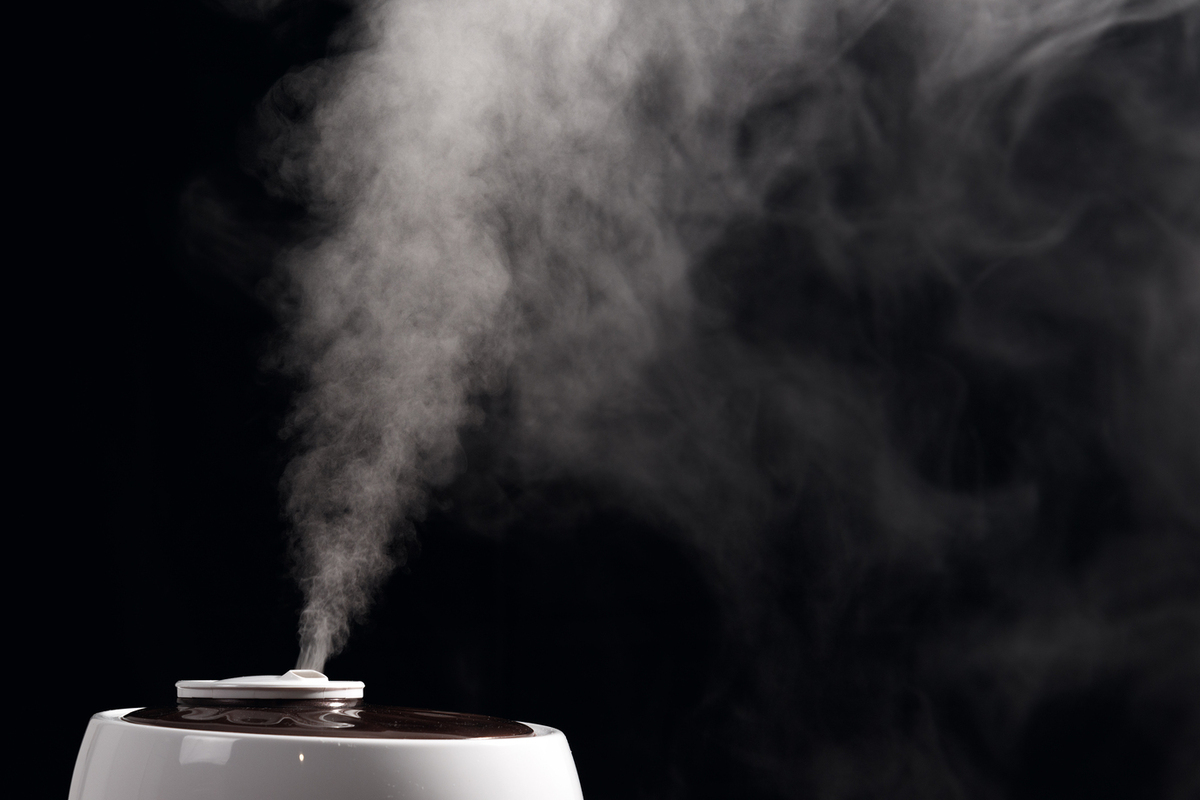You've probably heard that humidifiers make for an excellent, health-minded, addition to your home — and you may even have read about that Japanese study that showed that humidifiers have the potential to slow the spread of COVID.

What are humidifiers, exactly?
Humidifiers do exactly what their name suggests they might do — these, usually electric, appliances, add moisture to the air in the environment where they operate. Humidifiers come in different kinds. Console humidifiers are hidden away in cabinets, from which they can add moisture to a space by way of ultrasonic sound vibrations or mist. They can be central, built into your air conditioning or heating, or they can be portable and add moisture to only one space at a time. Smaller devices can vaporize water by heating it, or allow it to vaporize over time.
Why should you consider using a home humidifier?
The US Environmental Protection Agency strongly recommends a humidity level of between 30 and 50 percent in any home or office space. Environments with less moisture are considered to have extremely dry air, and that poses a tangible health risk. Even completely healthy people may start to notice symptoms like a dry and scratchy throat, dry and flaky skin, coughs, and irritated eyes. In extreme cases, dry air can even cause nosebleeds! Dry air can make your winters, when heating is actively drying the air out, hell.
People with existing (chronic) conditions like asthma or seasonal allergies, on the other hand, have an even more compelling reason to consider installing a good-quality humidifier in their homes, as doing so will alleviate their symptoms on an ongoing bases. Because humidifiers are especially known for their positive effect on respiratory health, many pulmonologist will say that every home — and every office — ought to have one.
So, why should the health risks associated with humidifiers also be on your radar?
In the face of so many compelling arguments in favor of making sure you have a (good) humidifier at home, you may be wondering why the headline is all about health risks. The health risks most commonly associated with humidifiers come down to user error — and that's a factor within your control. If you have a humidifier at home, or you are thinking about getting one, you should also know how to use it responsibly. Most importantly, you should be aware of what can happen if you don't take good care of your humidifier.
- Should the humidity of your air rise above 50 percent — something you should ideally test regularly — humidifiers can actually create an environment in which mold, mildew, and even a variety of bacteria can thrive. Even dust mites thrive in damp homes. Moldy homes are health hazards in themselves. Especially if you specifically got a humidifier to alleviate preexisting lung conditions, this is something you need to keep an eye on!
- Humidifiers themselves can easily turn into a "grow op" for bacteria and fungi, if you do not clean them often or properly. You'll recognize an environment like that because "slimy" deposits will line the surfaces of your humidifier. These microorganisms are then directly dispersed into the air, and therewith into your lungs.
- Minerals that were present in the water you used for your humidifier can likewise build up in the air, settling onto surfaces and into your lungs.
- Some people add scented products to their humidifiers. This may make your home smell wonderful, but these fragrances can cause serious problems and irritation to people with poor lung health or allergies, and are generally not recommended.
- Some humidifiers heat the air they are about to disperse before cooling and emitting it. These humidifiers pose burn risks, especially to small children and pets.
To enjoy the health benefits of a humidifier without falling victim to the potential risks, always:
- Research the kind of humidifier that is right for you. Some types disperse more minerals than others.
- Read and follow the manufacturer's instructions with regard to caring for your humidifier. They will generally include some or all of the following, also recommended by the Environmental Protection Agency.
- Keep portable humidifiers out of reach of children and pets. Consider a console humidifier if you do have a growing family.
- Clean your humidifier often and as instructed. (This should go without saying, but unplug it before doing so!)
- Use distilled, filtered, or purified water to "feed" your humidifier.
- Only use your humidifier when the air in your home is dry. Test this.
When used properly, a humidifier in your home will help you feel more comfortable during winter, while you are heating your home. It will save your skin from cracks and flakes and help you breathe more easily. It will even help prevent respiratory infections, including COVID-19. When used properly and chosen carefully, a humidifier is an asset to your home. If not, it can become a hazard. Because you're the one who essentially decides whether a humidifier will be a benefit or a brooding-bacteria-of-a-trap, make sure you know what you're doing before you plug it in!


Your thoughts on this